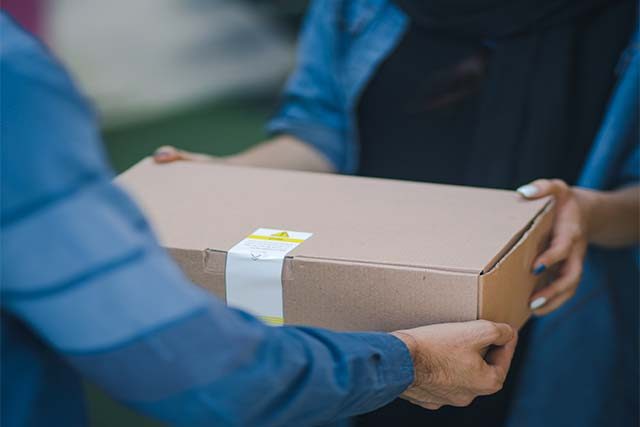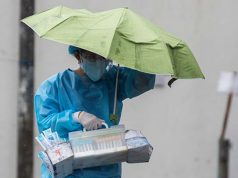SEOUL — An outbreak of COVID-19 at a logistics center run by one of South Korea’s largest online shopping companies has raised concerns over whether the virus can be transmitted by package deliveries.
Who’s been infected?
More than 117 cases of COVID-19 have been linked to the warehouse near Seoul owned by e-commerce giant Coupang facility. No cases have been related to deliveries and South Korean health officials have played down the chance of infection from packages.
While infection from touching surfaces of boxes or bubble wraps couriered by an infected logistics center worker would be concerning, the Korea Centers for Disease Control and Prevention said transmission in this manner was unlikely.
“There has been no precedent of a global transmission so far from delivered packages,” Vice Health Minister Kim Gang-lip told a briefing.
But health authorities and infectious disease experts have not ruled out the possibility of infection if a person touches their eyes, nose or mouth after contact with a contaminated package.
Contaminated surfaces
The World Health Organization (WHO) has cited laboratory research that found the coronavirus that causes COVID-19 could persist for up to 24 hours on cardboard and 72 hours on plastic and stainless steel.
Kim Woo-joo, a professor of Infectious Diseases at Korea University Guro Hospital, said the virus could also survive on surfaces like bubble wrap.
“The virus can last up to 24 hours on cardboards and over three days on hard surfaces like stainless steel. There is no research on bubble wraps yet, but it could be between a cardboard and a stainless steel,” he said.
Speedy delivery dangers?
Many of South Korea’s e-commerce brands are known for their less-than-24-hour “bullet delivery”. Both Coupang and Market Kurly, which have reported infections from their logistics centers, provide fast grocery delivery services.
This could raise the risk of spreading the virus, as packages don’t sit for long, some experts said.
“We should take into account the temperature and the humidity of the package, but there is a possibility of infection as they pack it overnight,” said Shin Hyoung-shik, president of the Korean Society for Zoonoses, a leading expert in infectious diseases.
However, Ki Mo-ran, professor of cancer control and population health at the National Cancer Center, said it was not so easy to contaminate packaging, and people should be safe as long as they wash their hands.
“Just a small amount of virus is not that contagious … the handles of a public restroom could be more dangerous.” —Reporting by Sangmi Cha; Editing by Richard Pullin










